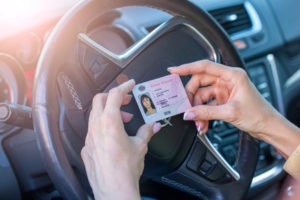
Being undocumented in the United States does not mean that you don’t have the same duties as a documented person, and it shouldn’t mean that you don’t enjoy some of the same freedoms. According to the Public Policy Institute of California, about 22% of immigrants in the state are undocumented.
So how are they supposed to get from point A to point B? A significant portion of car crashes in California involve at least one unlicensed driver – making it impossible for undocumented immigrants to drive legally makes the roads less safe. Thankfully, illegal aliens do have a way to legally get a driver’s license in California.
California offers people who are unable to prove legal presence an option called the “AB 60” driver’s license. These licenses and all other parts of immigration law can be hard to understand. If you or a loved one are having trouble with your documentation, an immigration lawyer in California may be able to help.
What Is an AB 60 Driver’s License?
The AB 60 driver’s license was named for Assembly Bill 60, which authorized the licenses. This bill removed the part of the process of getting a driver’s license that required proof of legal residence in the state. That way, undocumented immigrants are able to obtain a license.
The AB 60 license, then, is essentially a normal driver’s license. It affords the same rights that any other driver’s license does, with one exception: AB 60 licenses are not Real ID certified, which means you cannot use them in the same way that you can a real ID. That means you can’t use them to board an airplane or vote–you’d need a passport.
Other than that, the only difference between a normal driver’s license and an AB 60 license is the process that you go through to get the driver’s license. With an AB 60 license, you can drive a non-commercial vehicle as long as you have passed a driving test and have not had your license revoked.
For a free legal consultation, call (310) 896-2723
Who Is Eligible for an AB 60 Driver’s License?
To be eligible for an AB 60 driver’s license, you have to meet three criteria on top of the basic legal requirements for having a driver’s license. You must:
- Be a resident of California
- Be able to prove your identity
- Be willing to sign an affidavit that says that you are not eligible for social security number, but are authorized to reside in the United States
Thankfully, the California Department of Motorized Vehicles (DMV) provides an AB 60 checklist for applicants who want to know what documents they need to provide.
However, there are some things that disqualify you from receiving a driver’s license, namely a criminal record, past deportation, or other legal hangups. If you’re dealing with criminal charges, a criminal lawyer in California may be able to help.
How to Apply for an AB 60 Driver’s License in California
Given that you meet those requirements, you will have to undergo the application process for your AB 60 license–not necessarily an easy task. To receive a driver’s license, illegal immigrants have to complete the same basic steps that any other applicant would, plus some extra steps to prove their status.
The process for undocumented people to get a driver’s license includes:
Completing the Application for a Driver’s License or Identification Card
The first step in the application process is to actually send in your application. The Driver’s License or Identification (DL/ID) card application, which you can complete online or at the DMV, is necessary to go through with the subsequent steps of the process. You’ll also have to pay an application fee.
Providing Your Documents
At your DMV appointment, you’ll need to provide all of the documents you need to prove your identity and your residence in California. The DMV will also scan your thumbprint and take your picture for their records.
Taking the Tests
Here comes one of the most important parts of receiving a driver’s license: taking the tests. Just like any other license applicant, undocumented people will need to prove that they are able to drive responsibly.
To receive a driver’s license in California, applicants will need to pass a written knowledge test, a vision test, a driving test, and possibly a road signs test. Thankfully, there are plenty of resources to help potential drivers prepare for their tests.
Does Having a Driver’s License Give You Legal Status in California?
No, having a driver’s license does not give licensees legal status in the state of California. The AB 60 license is simply meant to give undocumented immigrants the ability to drive and easily prove their identity in a non-legal context.
The state of California does not grant any legal status to immigrants, so a California driver’s license is not enough to participate in elections. Legal status is only granted by the federal government, and so undocumented immigrants who want legal status will have to go through the proper channels.
Complete a Free Case Evaluation form now
You Can Talk to an Attorney for Free Today
Some immigrants may not have access to the AB 60 driver’s license because of their criminal record. If you are having any trouble with immigration law or any other criminal charges, immigration law violations lawyers Simmrin Law Group can help.
Our criminal defense attorneys treat clients like family. We handle each case with compassion and skill, and we know how to navigate California’s legal system. Don’t hesitate to get a free consultation by calling us or contacting us online.
Call or text (310) 896-2723 or complete a Free Case Evaluation form
